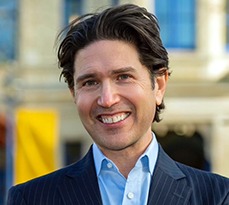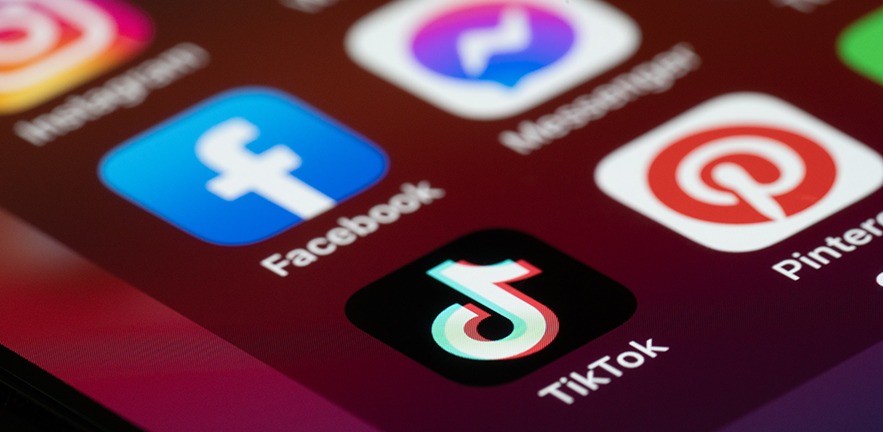Concerns in the US over popular Chinese app TikTok reflect strained US-China relations. Two Cambridge Judge Business School academics – Professor Christopher Marquis and Fellow Hamza Mudassir – discuss how the issue began and where it might lead.
Marathon hearings in the US Congress often focus on age-old issues of war and peace, but a 5-hour hearing last month instead focused on a very new and topical issue: does the super-popular China-based app TikTok pose a risk to US national security that merits a ban or restrictions?
It was high drama on 23 March as TikTok CEO Shou Zi Chew was grilled for more than 5 hours in a bipartisan session that ranged from TikTok’s relationship with the Chinese Communist Party (CCP) to the app’s effects on the mental health of teenagers who have grown to love it.
TikTok controversy links geopolitics and technology
The controversy over TikTok bridges geopolitics regarding China and technology – so we asked 2 Cambridge Judge Business School academics who, respectively, specialise in those areas to offer some thoughts on the controversy.
Christopher Marquis, Sinyi Professor of Chinese Management and author of the recent book Mao and Markets, has written extensively about Sino-Western relations and the workings of the CCP. Hamza Mudassir, Visiting Fellow in Strategy and MBA alumnus (MBA 2012) of Cambridge Judge, has examined big tech issues ranging from videogaming wars to the recent microchip shortage.
Here are some of their thoughts on the TikTok saga, and where it might all lead:
It’s no surprise the US Congress raised concerns

Christopher Marquis: We’ve seen this movie before in discussions in the US on whether the Chinese government owns big telecoms company Huawei. Perhaps from a strictly ownership standpoint the answer is no, but that’s not really the issue. What politicians in the US and other countries including the UK should be focused on is how the CCP controls Chinese companies. The Chinese system is different than the West, there is no rule of law, and the CCP sits above the state, the market and even the military.
So all the focus in the hearings on Chinese law is somewhat beside the point. Not that law is totally irrelevant, but the CCP can write the law in whatever way they want. The system is different than ours, so we should not be looking at the law, but at CCP control mechanisms.
There are many ways they do this, through parallel CCP leadership organisation within firms, “golden shares” where the CCP has veto rights on corporate decisions, and others. The founder of TikTok’s corporate parent Bytedance Zhang Yiming’s public apology a few years ago for content on TikTok and his articulated commitment to uphold CCP values, and broadcast CCP messages really illustrates this power. And CCP control of business has only gotten stronger since then. The idea that the CCP has no control over TikTok is, in the words of one of the Congressmen at the heading, “preposterous”.
Hamza Mudassir: TikTok has over 150 million users in the US alone, with most of them being under the age of 30, a demographic much in demand by advertisers. It was only inevitable that a platform of this size, influence and monetisation appeal was going be pulled in for scrutiny by US lawmakers – and this got expedited thanks to TikTok’s link to China.
Let’s not forget that there was also extensive lobbying done by TikTok’s arch rival Meta, with a goal to malign the Chinese app in US conservative circles. While Meta defended these lobbying efforts as a means of scrutinising the practices of TikTok, it is quite evident that it was not done for philanthropic reasons. By Meta’s own internal estimates, teenagers are finding TikTok more attractive than Instagram and Facebook’s popularity among young people has all but collapsed.
TikTok did not help its own case either. By the end of 2022, there were bombshell reports by Forbes and The New York Times indicating that its parent company Bytedance’s employees had accessed location data of US journalists in order to fish out where information leaks to the press were happening. All of this created a perfect storm for CEO Shou Zi Chew, who ended up facing a tougher hearing from the US Congress than any other tech leader in recent history.
The TikTok app itself is only a sideshow

Hamza Mudassir: It is clear that the TikTok case has more to do with geopolitics than the actual app itself, and no amount of official oversight and technological wizardry is going to solve a lack of trust between two nation states. When push comes to shove, whose policies would take precedence on the platform… Chinese or American? The US and China have had a troublesome relationship with each other ever since the Trump administration implemented tariffs and other trade barriers against the Chinese in 2018 – something the Biden administration has since continued with.
Christopher Marquis: The core issues are about how TikTok deals with the vast amount of data it collects on US consumers and potential for disinformation, and what material children can see. The same concerns apply of course to Facebook and Google and Amazon and many other big US tech companies – and that raises separate issues of privacy and bigness and concentration. But for US policymakers the issue with TikTok should be bigger: Here we have a foreign power that has shown itself to exercise control over companies in nefarious ways. A report to the Australian Senate shows TikTok is already engaged in narrative control and disinformation in ways that promote CCP ideas and values. The real issue is that as long as TikTok is owned by Bytedance in Beijing there is no way we can fully trust how it handles data, no matter what policies it puts in place or its CEO says at a congressional hearing.
Is there an ownership compromise that might work?
Christopher Marquis: I think the only way TikTok should be allowed to remain in the US is if it is fully divested from Bytedance and Chinese ownership. The Chinese government has increasingly recognised the importance of tech as critical information infrastructure, so in 2020 the State Council formally designated data as a “factor of production” a la Marx, joining land, labour, capital, and technology. This followed a “golden shares” program started in 2016 to enhance its discreet monitoring of business operations. And over the last few years, there have been many crackdowns on tech companies and increasing use of golden shares. So if TikTok remains a Chinese company the risks of CCP intervention will only increase and potentially put the US at future risk.
Hamza Mudassir: So where does TikTok go from here? It could continue emphasising its technological solution to cover for national security concerns but there are slim chances US lawmakers would be satisfied with it. It could always re-attempt to sell the US business to the likes of Oracle or Walmart but that is likely to not work due to interventions by the Chinese government. In the end, the only option it is left with is to leverage its very vocal base of 150 million young Americans to push law makers from taking away their favourite app. Chew seems to be taking this route by bringing a more public persona of himself to TikTok and appealing to the sensibilities of the young audience loyal to the platform to help save it from a ban.


